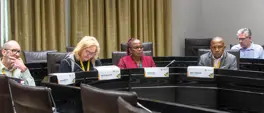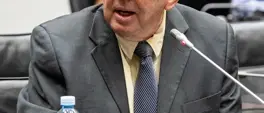Scrapping medical aid tax credit could push millions into public healthcare - expert
Sara-Jayne Makwala King
1 August 2025 | 5:02Experts say removing the medical aid tax rebate may make private cover unaffordable for many working-class families, placing greater strain on the public health system.
- Stephen Grootes
- The Money Show
- 702
- CapeTalk
- Healthcare
- National Health Insurance (NHI)
- Tax rebate
- Private healthcare

SA's NHI Bill not properly thought through, says doctors' forum Picture: Pexels
702 and CapeTalk's Stephen Grootes speaks to CEO of the Health Funders Association Thoneshan Naidoo.
Listen below:
Millions of South Africans face the possibility of being unable to afford medical aid, if plans go ahead to scrap the medical aid tax credit.
The Medical Scheme Fees Tax Credit applies to fees paid by a taxpayer to a medical scheme, and is used to reduce the normal tax a person pays.
The rebates incentivise people to have private health cover, allowing the state to concentrate on public healthcare services for the poorest of the poor.
Currently, for a family of four, the MTC works out at around R1 220 less tax payable per month.
For the average working class family that could be the difference between staying on a medical scheme and having to use the public healthcare system, says Naidoo.
RELATED: [LISTEN] Investing in medical aid can LITERALLY save your life
"Through our analysis, we've actually shown that 44% of medical scheme members earn less than R16 000 per month."
- Thoneshan Naidoo, Health Funders Association CEO
"These are working class people - and when you talk about R1 200, that's about 10% of their income... losing that tax credit could fundamentally lose access to healthcare due to affordability."
- Thoneshan Naidoo, Health Funders Association CEO
The removal of medical aid tax credits has already been in the pipeline for some time.
Government suggests it will provide additional revenue to support its National Health Insurance (NHI) scheme.
But Naidoo says if it means hundreds of thousands of South Africans can no longer afford medical aid, the knock-on effect would be dire.
"The public sector cannot handle another million people... the cost to the state will be another R14 billion."
- Thoneshan Naidoo, Health Funders Association CEO
Not only that, but the loss of VAT being paid by those who may no longer be able to afford private healthcare would run into millions of rand, says Naidoo.
"That million-odd people who currently pay VAT for healthcare services in the private sector, that VAT is gone... no-one's actually done a proper analysis, and this is one of the shortcomings."
- Thoneshan Naidoo, Health Funders Association CEO
What impact would the scrapping of medical tax credits have on medical scheme members and the public healthcare system? Scroll up to audio player to find out.
Get the whole picture 💡
Take a look at the topic timeline for all related articles.














